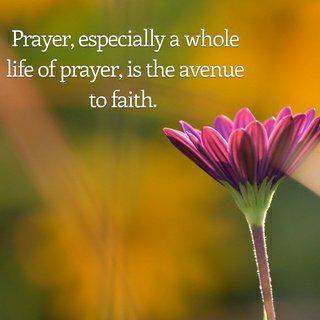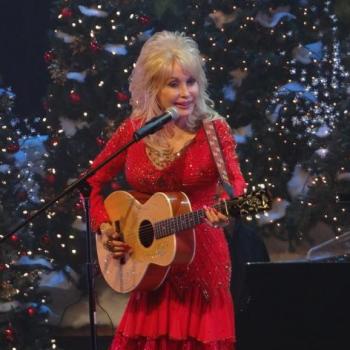Prayers are Powerful

Jesus knew the father’s heart and accepted his halfhearted statement of faith. He healed the boy and then went inside, away from the growing crowd.
After he had gone into the house, his disciples asked him privately, “Why couldn’t we drive it out?”
And he told them, “This kind can come out by nothing but prayer.” (9:28–29)
- Sometimes, the act of prayer is an act of faith. We may not feel confident, but we express confidence by speaking to our God about our need. Obedience first, and feelings may follow.
- Sometimes, in our dark times, we need others to do the praying with us. The phrase “the power of prayer” typically appears when someone seeks a large group of people to intercede in prayer for one specific purpose. And in this context, I’ve come to embrace the idea that power exists in a community of people loving someone in pain by, en-mass, calling to God on that person’s behalf.
Much like Aaron and Hur supported Moses’s arms during battle (Ex. 17:12), in our weariness we need supporters too. Prayer support means that others are coming alongside to “amen” or affirm what is true—that God loves me, cares about my need and pain, is capable of acting—whether I am capable of fully expressing those truths or not. This reasoning shows why a youth group recruits prayer partners for each participant, holds a special prayer service beforehand, and encourages the entire church to keep praying every day of the trip. Those kids and leaders will be talking to God as well, but often they get caught up in the doing (and some in the worrying). We are none of us perfect believers. We need each other, and intercessory prayer can be a means to divine empowerment.
A newly divorced person likely feels broken inside for a long time. Prayers on her behalf can not only encourage her when she knows about them (“I am loved”), but they also stand in place of her own prayers when she cannot muster the words herself. A mother standing over a NICU baby crib finds herself helpless, fearful, weary, emotional, and possibly prayerful. When her community intercedes for her child, that burden is lifted from her in her time of weakness. A wellspring of pray-ers reflect the heart of God when they exhibit selfless love for their friends in need.
Paul the apostle, as he instructed the churches in various spiritual matters, often referred to his own prayers on their behalf: Eph. 1:16; 3:14–19; Col. 1:3, 9–10; 2 Thess. 1:11. He and other church leaders also requested prayer on their own behalf: Rom. 15:30; 2 Cor. 1:11; 1 Thess. 5:25.
Praying Unites Us
I believe intercessory prayer unites the church in love. It is part of what it means to be a member of the church universal, the fellowship of the saints. Each of us joins our voice, our plea, in unison with dozens, hundreds, thousands of others for the same purpose to the same powerful God. We may not know how it works, but we trust in the One who calls us to it. Much about God is a mystery, and the mechanism of how prayer works within his holy will remains shrouded in the unknown. But God asks us not to understand but to obey, not because we know how but because we know him—and he is enough.
So I’m rethinking my stance on “the power of prayer” by remembering that it’s just another way of saying “the power of love”—both the power found in the love of my brothers and sisters in Christ, and the ultimate power of Love Himself.












